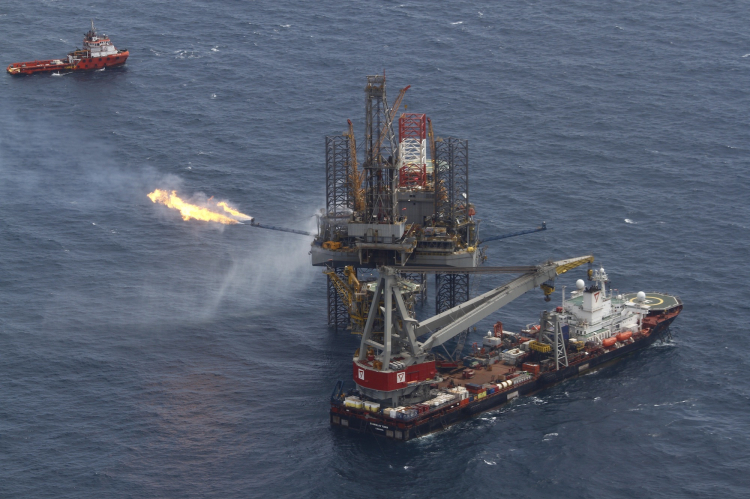Reuters reported days ago that U.S. Treasury had granted a license to Trinidad & Tobago to develop, manage, and market gas produced in Venezuela's Dragon Field. Trinidad's National Gas Company (NGC), Petroleos de Venezuela (PDVSA) and Shell would expectedly be jointly in charge of development, production, operational and marketing aspects. Payment -for such gas- would be made by Trinidad & Tobago to Venezuela in humanitarian aid. The alleged two-year license, which has not been made public and is not posted as customary on Treasury’s website, imposes non-cash payments on the deal, given prevalent sanctions regime on Venezuela and PDVSA. This site is of the opinion that Trinidad is not going to be able to produce gas in Venezuela's Dragon Field in the time window stipulated, in fact, President Nicolas Maduro has already said that such impositions (non-cash payments) were unacceptable.
Beyond whatever payment mechanism governing the deal, Dragon Field is not even operational. Initial works involved the Aban Pearl, the now infamous drilling rig that sank in 2010. Since then, PDVSA has contracted different parties to advance works. PDVSA's plans with Dragon Field were mainly twofold: connect to Hibiscus Platform (operated by NGC / Shell) and connect to Gran Mariscal de Ayacucho Industrial Complex (CIGMA) in Güiria (Venezuela) to supply domestic market. The last published report from PDVSA's Commissar claimed that, as of 2017, no works had been completed, among other things for lack of payment to contractors.
PDVSA is not hampered by Treasury sanctions, really. Corruption and decades of mismanagement are what stand in the way of deals like the one announced. Take another example, the license given to Chevron, which is having to consolidate / StS cargoes arriving in small vessels coming out of Maracaibo Lake, given impossibility of larger tankers to navigate / berth directly in loading ports. Sources report that Chevron was seeking shipping agents to assist with consolidation in nearby Aruba.
Another report making the rounds is related to quantities of crude being exported by PDVSA. This site gets a regular feed of lineups and there's nothing in PDVSA's internal documents suggesting any impediment to normal operations: the same old dodgy operators (Badger Trading, Cirrostrati Technology, United Petroleo), plus Naftiran Intertrade, Cubametales, Hangzhou Energy and Chevron continue to lift millions of barrels of crude as a matter of regular practice. Aside from Cuba and now the U.S., most cargoes end up in China via Malaysia and Singapore. PDVSA simply cannot stop trading with dodgy operators -most of which under chavista officials personal and direct control- for those are the only ones that bring in money and are impervious to Treasury sanctions. The rest is debt repayments, which only in the case of Chevron is regulated. Ruling parties in Cuba, Iran and China can do whatever they want in / with Venezuela.
Speaking of United Petroleo, recently exposed in yet another Treasury sanctions-busting operation involving former PDVSA CEO Luis Giusti and Curaçao’s authorities, it lifted 2 million barrels of crude not that long ago. Interestingly, in the Curaçao deal United Petroleo partnered with another Panamanian shell, called K-nob Trading, whose director happens to be a former PDV Marina official (Argenis Gonzalez Lopez).
Iran is insistently depicted as the solution to Venezuela's refinery problems. Fresh reports indicate that a revamped agreement between Venezuela and Iran will bring back Amuay / Cardon Complex to full operational capacity. In 100 days. However in the many days since first announcement that Iranian and Chinese technicians would fix PDVSA's refineries, not a lot has been achieved.
PDVSA is in a state of near absolute dereliction. Reporting that a license here or there is going to, suddenly, bring back output to pre chavismo levels is not only irresponsible, but ignorant. There are no quick fixes in Venezuela, regardless of baseless declarations by politicians in Washington.

